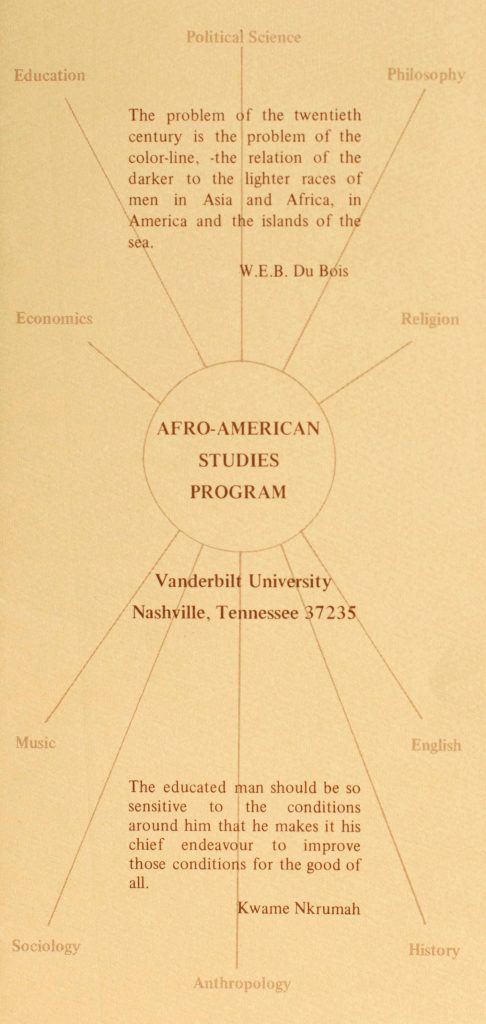A Program Emerges (1969-1975)
A Program Emerges from Movements (1969-1975)
The Afro-American Studies Program (AASP) at Vanderbilt began in 1969 as a partnership with Fisk University, Peabody College, and the Scarritt College for Christian Workers.
The first director was Akbar Muhammad. By 1973, he led eight core and eighteen participating faculty members. While support mostly came from African American students and faculty, the new program experienced difficulties existing on a campus that only formally desegregated in the early 1960s.
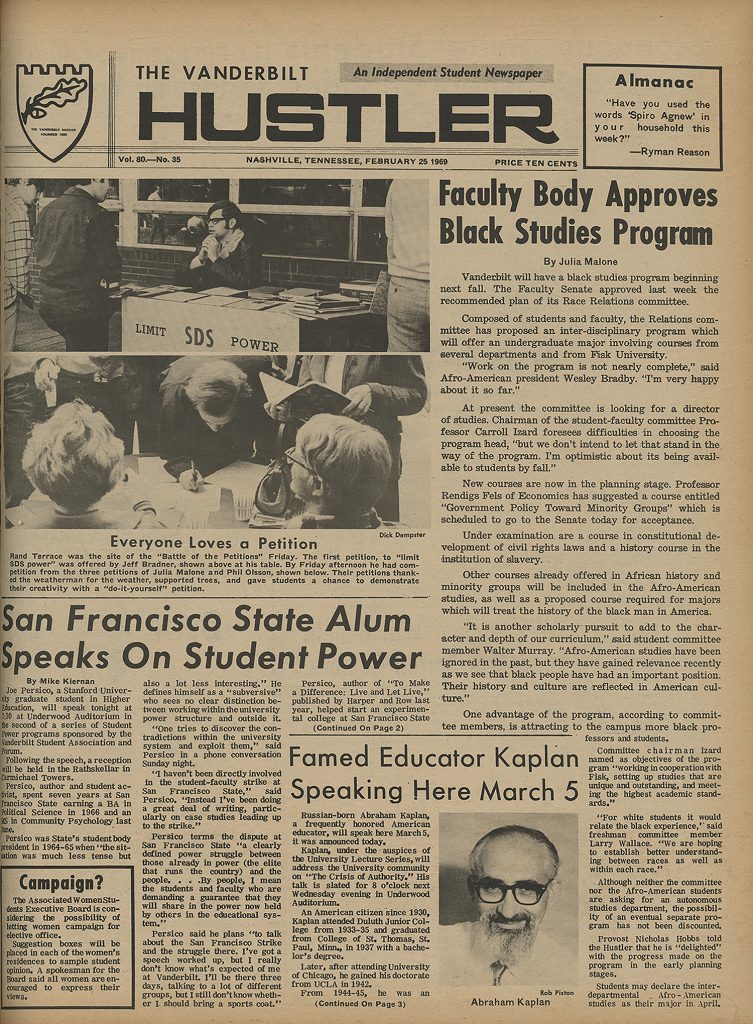
Julia Malone. “Faculty Body Approves Black Studies Program.” Vanderbilt Hustler, February 25, 1969. Reproduction. Vanderbilt University Special Collections.
Vanderbilt’s student newspaper details work of the Race Relations committee. It included African American students and campus faculty recommending a program of Black Studies. Proposed courses, challenges naming a director, and insights from African American students are discussed. Walter Murray, Afro-American Association founder and later the first African American on Vanderbilt’s Board of Trust, is quoted. The role of Black student activism helping make the program a reality is evident.
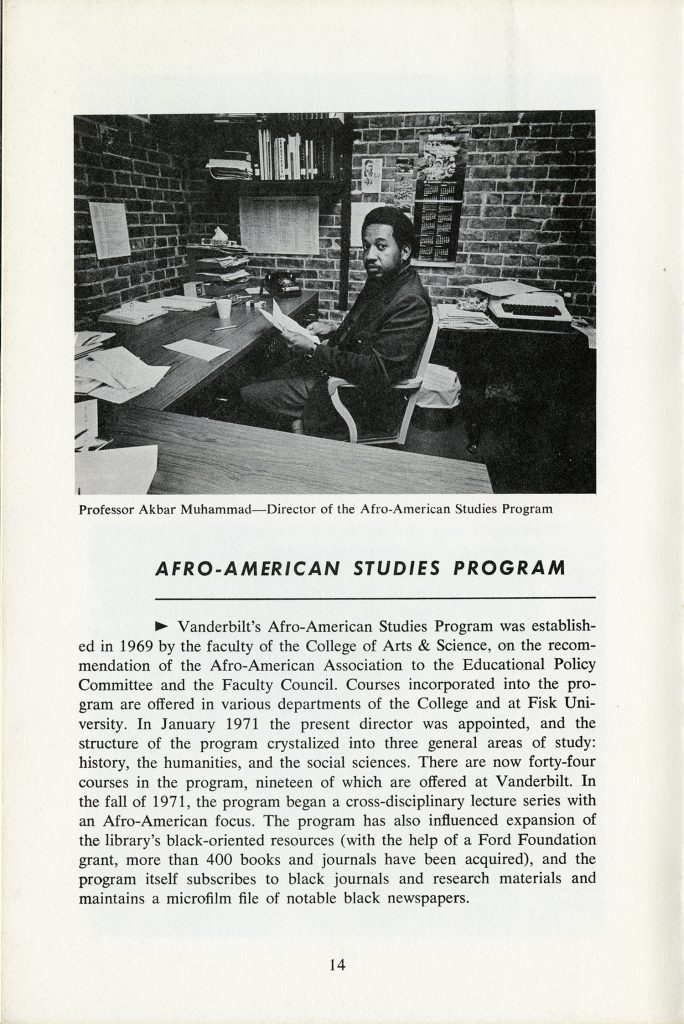
The Black Student at Vanderbilt. Office of Undergraduate Admissions, Vanderbilt University, 1973. Reproduction. Vanderbilt University Archives.
Professor Akbar Muhammad, the first director of Vanderbilt’s Afro-American Studies Program, is pictured. Text details course offerings, faculty, even noting library funding from the Ford Foundation. This publication was used to recruit African American students to Vanderbilt.
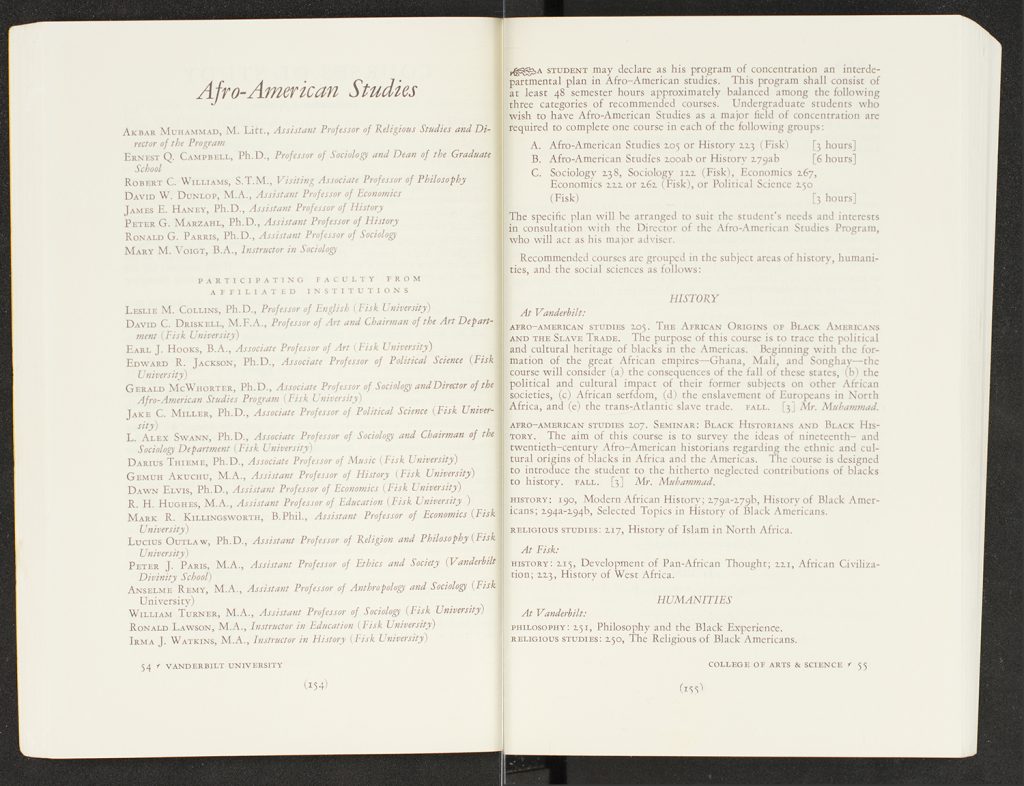
General Catalogue Issue: Containing General Information, Appointments, and Courses of Study. Vanderbilt University, 1973. Vanderbilt University Special Collections.
Record of faculty, course offerings, and program requirements for the 1972-1973 academic year. Afro-American Studies director Akbar Muhammad taught required courses “The African Origins of Black Americas and the Slave Trade” and “Black Historians and Black History.”
Vanderbilt students could also take courses at Fisk University. Noted faculty there included David Driskell, who developed African American art as a distinct scholarly field. Abdul Alkalimat (Gerald McWorter), a sociologist and Director of the Afro-American Studies Program, organized with SNCC and the African Liberation Support Committee. Philosophy professor Lucious T. Outlaw (Jr.) later chaired African American Studies at Vanderbilt from 2000-2003.
Brochure from the early years of the Afro-American Studies Program (AASP). This cover notes academic fields informing the interdisciplinary nature of the program. Pan-Africanism, as theory and global diaspora, guides AASP as evident in quotes from W.E.B. Du Bois and Kwame Nkrumah.
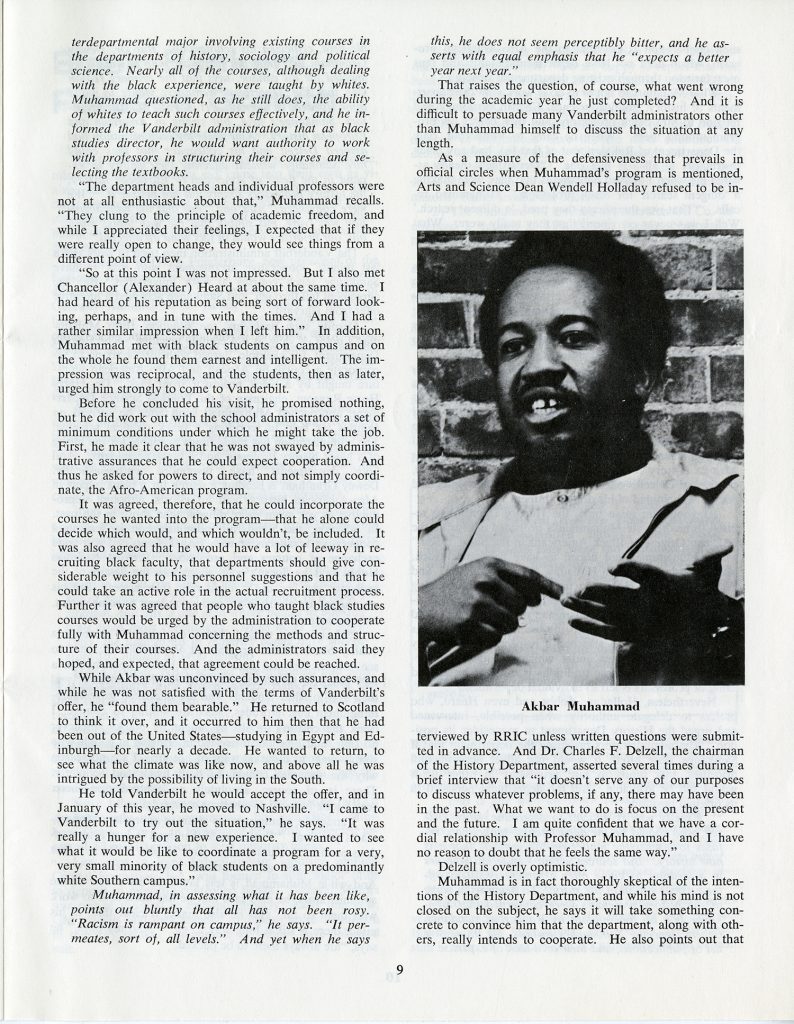
Frye Gaillard. “Vanderbilt Adjusts to Black Studies.” Race Relations Reporter, volume 2, number 20, 1971. Vanderbilt University Archives.
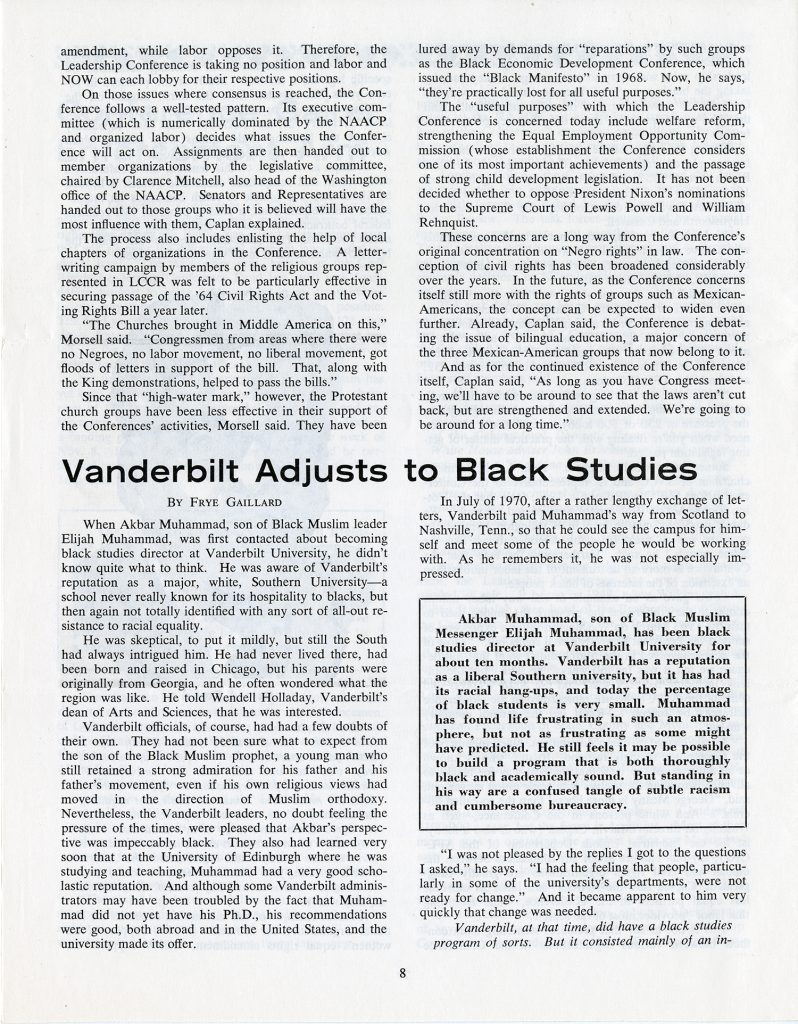
This Race Relations Reporter article, published by Fisk University, contains a candid discussion with AASP director Akbar Muhammad. He shares concerns about the program and campus race relations at this time.

